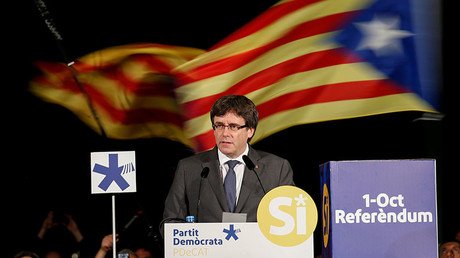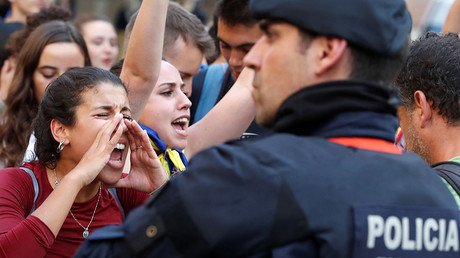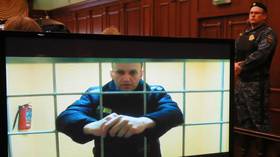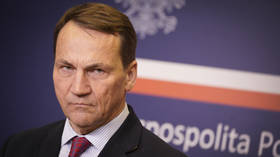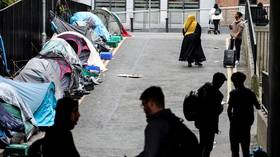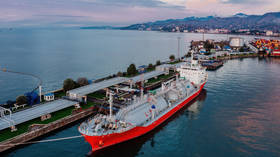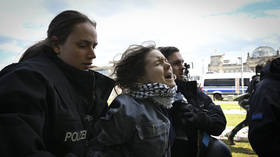Catalonia signs ‘declaration of independence,’ temporarily suspends it for dialogue with Madrid
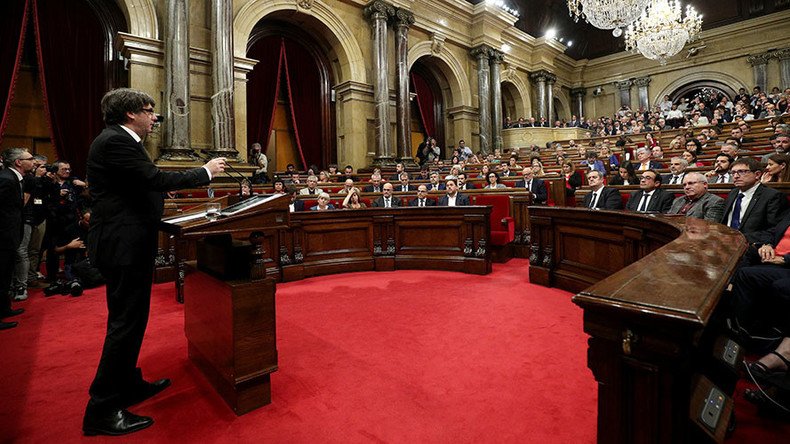
The Catalan leader says he "assumes the mandate that Catalonia should become an independent state in the form of a republic." Local leaders signed what they called “a declaration of independence”, suspending it temporarily to facilitate dialogue with Madrid.
"Catalonia restores today its full sovereignty," reads the document titled 'Declaration of the representatives of Catalonia', Reuters reported.
"We call on all states and international organizations to recognize the Catalan Republic as an independent and sovereign state," the document signed by Catalan leader Carles Puigdemont and other regional politicians says. However, its legal status remains unclear.
Puigdemont announced earlier on Tuesday that Catalonia won the right to be an independent state during its recent referendum on the issue, as there was a clear 'yes' vote.
"It's not a personal decision," but the result of the vote on "self-determination,"he added. It's the leader's first speech since the controversial October 1 referendum on the region's independence from Spain.
"This is a special and historic moment having a long outreach," Puigdemont announced, arguing that the current situation in the EU state is "not only a domestic affair."
Spain's deputy prime minister, Soraya Saenz de Santamaria, has announced an emergency cabinet meeting on the Catalonia independence issue scheduled for Wednesday.
During his speech, Puigdemont also referred to the Brexit referendum on the UK's withdrawal from the European Union. "If that is possible in Europe, why can't the same standards be applied in regard to Catalonia and Spain?" he said.
The region has always strived for "transition and development," having for many years asked for separation from the central government. Instead, it has received "political humiliation" from Madrid, according to the region's president.
Spanish authorities attempted to disrupt the process, with the police taking away voting documents and hindering many people's chance to vote in the referendum, Puigdemont noted.
Yet, the Catalan officials "want to de-escalate the tensions" with Madrid and the Spanish people, he pointed out, adding that his parliament "will apply the forces of dialogue."
Hours before Puigdemont's address, the Spanish ruling party made threatening allusions to a previous independence bid. "Perhaps the one who declares it [independence] will end up like the one who declared it 83 years ago," a spokesman for the People's Party (PP), Pablo Casado, said on Monday.
The politician was apparently referring to Lluis Companys, the president of Catalonia who proclaimed a 'Catalan State within the Spanish Federal Republic' in 1934. He then had to flee the country, and was tried for military rebellion and executed in 1940.
Following the referendum, Spain's Prime Minister Mariano Rajoy has ruled out all talks with Catalan officials and said Madrid would use all legal means necessary to stop Catalonia's secession. "We are going to prevent independence from occurring. That is why I can tell you with absolute frankness that it will not happen," he said last week. The PM has also vowed to keep federal police in the region.
During the referendum on October 1, Spanish law enforcement violently clashed with those who came to cast their votes, physically removing people from polling stations and confiscating ballot boxes. Nearly 900 people were injured in the police crackdown, according to the Catalonian government.
The Catalan leader, alongside other regional and some European officials, condemned the actions of the Spanish authorities, calling them "unjustified, disproportionate and irresponsible violence."
READ MORE: Catalonia crisis: Council of Europe demands Spanish probe into ‘police violence’
The European Union has said it would not recognize an independent Catalonia. The issue is considered an internal matter for Spain, with the bloc calling for dialogue between the central and regional governments, and for no repeat of the recent violence.
Some politicians in Europe have harshly criticized the EU for its stance, with Serbian President Aleksandar Vucic accusing the bloc of hypocrisy and double-standards. "How come that in the case of Catalonia the referendum on independence is not valid, while in the case of Kosovo secession is allowed even without a referendum," Vucic said.
